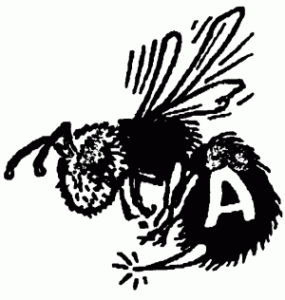
Can I look any more smug. Can I.

David Brin
Oops, he did it again.
David Brin, whom some think of as a libertarian science fiction author, and who styles himself as such, but who really isn't even close to being libertarian, and who seems to spend an inordinate amount of time these days attacking real libertarians like a jilted lover, was recently interviewed on Wired.com via the Geek's Guide to the Galaxy podcast.
Brin has a controversial take on Star Wars. For example, he calls Yoda one of the most evil characters ever. Well, okay, Brin does have something of a point when it comes to Yoda. The Jedi as a whole are pretty much useless, meddling busybodies who are directly or indirectly responsible for the fundamental political problems in the Star Wars universe.
But Brin's main criticism of Star Wars and George Lucas is premised largely on his fetish for state-democracy (my term for democratic institutions and processes ossified as formal mechanisms in the state apparatus). Lucas comes under fire for always protraying the republic as corrupt and nonfunctioning, which he does because he despises democracy and favors benign dictatorship.
But, of course, Brin has staked his entire nonfiction career on his Platonic ideal of radical transparency allowing perfect knowledge in a state-democracy. Only when this ideal is realized will freedom be protected and capitalism work properly, says Brin.
[continue reading…]
Help Promote Prometheus Unbound by Sharing this Post

“The Cartographer Wasps and the Anarchist Bees” is a delightful fable,1 not only on account of the political themes it explores but also some very fine writing. The short story was first published in Clarkesworld Magazine (Issue 55, April 2011) and then republished by Escape Pod (Episode 343, March 2012). If you're partial to audio fiction, you can spend a pleasant half hour listening to the story being narrated by Kate Baker (Clarkesworld) or Mur Lafferty (Escape Pod).2 Yu's tale has been nominated for a 2011 Nebula Award and a 2012 Hugo and is a finalist for a Locus Award and the Million Writers Award, and it is deserving of all of these honors. Yu, a student at Princeton, is a new author to watch.
Yu's tale warns of the transitive and cyclical nature of violence — from thoughtless destruction to calculated imperialism. It begins with a boy attacking a wasp nest and ending the uneasy truce between the wasps and his village. The villagers make an amazing discovery: the wasps had inked beautiful maps of the land (China) into the walls of their nest. Soon the wasps were hunted to near extinction and a group of survivors manages to escape.
The leader of the surviving wasps has learned well the hard lessons of realpolitick. Once the new nest has been established, she orders her wasps to expand aggressively. A nearby bee hive is enslaved and forced to pay tribute. The victim of violence has resolved to avoid being the victim ever again by becoming the oppressor.
But the subjugation of the bees has unintended consequences. Some of the bees are educated and trained in philosophy, science, and cartography. One day a bee with an inclination to anarchism is born and so educated and trained, and she produces a brood of anarchist sons…
[continue reading…]
Help Promote Prometheus Unbound by Sharing this Post




